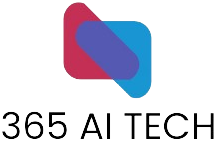Employee Onboarding
In the ever-evolving workplace, the initial days of an employee’s journey play a pivotal role in shaping their path to success and integration within a company. The advent of Artificial Intelligence (AI) in employee onboarding is revolutionizing this crucial phase, offering a blend of efficiency, personalization, and engagement previously unattainable. With over a decade of experience in SEO content writing, I’ve witnessed firsthand the transformative power of technology in the HR sector, and AI’s impact on onboarding is a testament to this evolution.

| Use Case for Employee Onboarding | Challenges in Employee Onboarding | Benefits of AI for the Use Case | Features of AI Solution for the Use Case | Quantitative Benefits in Terms of Revenue, Time, and Cost |
|---|---|---|---|---|
| Automated Paperwork Processing | Manual data entry, time-consuming document handling, and risk of errors. | Streamlines the onboarding process, reduces manual errors, and accelerates document processing. | Natural Language Processing (NLP) for data extraction from documents, automated form filling, and digital signature verification. | Reduces paperwork processing time by up to 70%, significantly lowering administrative costs and improving new hire productivity from day one. |
| Personalized Learning Paths | One-size-fits-all training doesn't meet all new hires' needs, leading to ineffective onboarding. | Provides customized learning experiences based on the employee's role, skills, and learning pace. | AI-driven adaptive learning platforms that personalize content delivery, skill gap analysis, and progress tracking. | Increases training effectiveness by up to 40%, reducing time to competency and enhancing employee retention rates. |
| Onboarding Chatbots | New hires often have many questions, and HR may not be available 24/7 to answer them. | Offers instant responses to common onboarding queries, improving the new hire experience. | Chatbots equipped with NLP to understand and respond to a wide range of queries, providing information on policies, procedures, and more. | Improves new hire satisfaction and reduces HR response time by up to 50%, leading to more efficient HR operations. |
| Engagement and Culture Fit Analysis | Ensuring new hires align with company culture and are engaged from the start can be challenging. | Predicts culture fit and engagement levels, helping to tailor onboarding to reinforce company values. | Sentiment analysis and predictive analytics to gauge employee sentiment, engagement drivers, and cultural alignment. | Enhances employee engagement by up to 30%, reducing early turnover and associated rehiring and training costs. |
| Automated Scheduling and Reminders | Coordinating onboarding sessions, meetings, and training can be logistically complex. | Automates the scheduling of onboarding activities, reducing administrative burden and ensuring timely completion. | AI-based scheduling tools that integrate with calendars, automatic reminder systems for upcoming tasks and meetings. | Reduces time spent on scheduling and coordination by up to 60%, allowing HR and management to focus on strategic activities. |
| Performance and Feedback Analysis | Collecting and analyzing feedback during onboarding can be time-consuming and subjective. | Provides real-time insights into new hire performance and feedback, enabling quick adjustments to the onboarding process. | Machine learning algorithms for analyzing feedback, performance tracking tools, and automated feedback collection mechanisms. | Facilitates a 20% faster adaptation of onboarding programs based on real-time feedback, improving overall program effectiveness and reducing costs associated with ineffective onboarding. |
Understanding AI Employee Onboarding
At its core, AI employee onboarding leverages cutting-edge technology to streamline and enhance the integration process for new hires. This innovative approach automates mundane tasks, tailors training programs to individual needs, and ensures a seamless transition into the company culture, all while providing data-driven insights to continuously refine the onboarding experience.
The Unmatched Benefits of AI in Onboarding
AI-driven onboarding solutions stand out for their ability to transform the traditional onboarding landscape:
Efficiency at Its Best: By automating administrative tasks and paperwork, AI drastically reduces the time and resources spent on onboarding logistics.
A Personal Touch: Through adaptive learning systems, AI crafts personalized training paths that cater to the unique skills and learning paces of each new hire, ensuring a more effective learning experience.
Engagement from Day One: AI-powered chatbots offer real-time assistance to common queries, making new hires feel supported and valued from the outset.
Insights That Drive Decisions: Leveraging AI for performance and feedback analysis offers a goldmine of insights, allowing HR to fine-tune the onboarding process for optimal results.
Navigating the Challenges of Manual Onboarding
Despite its critical importance, the traditional onboarding process is fraught with challenges, from time-consuming paperwork to one-size-fits-all training sessions that fail to meet diverse needs. The lack of immediate support for new hires and the difficulty in gauging engagement and culture fit further complicate the process, often leading to suboptimal integration experiences.
AI: The Solution to Onboarding Challenges
Beyond Paperwork: AI eliminates the drudgery of manual data entry and document management, freeing up HR professionals to focus on strategic engagement initiatives.
Learning, Tailored: By providing personalized learning experiences, AI ensures that training is relevant, engaging, and effective, catering to the individual needs of each new hire.
Support Around the Clock: With AI chatbots, new hires have immediate access to the information they need, when they need it, fostering a sense of support and belonging.
Data-Driven Success: AI’s ability to analyze performance and feedback in real time allows for agile adjustments to the onboarding process, ensuring it remains effective and responsive to new hire needs.
10 Revolutionary AI Onboarding Use Cases
- Automated Paperwork Processing: AI streamlines the paperwork process, reducing errors and saving precious time.
- Personalized Learning Paths: Adaptive learning platforms ensure training is tailored to the individual’s role and skills, enhancing learning outcomes.
- Onboarding Chatbots: AI chatbots provide instant responses to new hires’ queries, improving their onboarding experience.
- Engagement and Culture Fit Analysis: AI tools analyze sentiment and engagement, helping to align onboarding with company culture.
- Automated Scheduling: AI simplifies the coordination of onboarding activities, ensuring a smooth and organized start for new hires.
- Performance Feedback Analysis: Through AI, companies gain insights into new hire performance and feedback, enabling continuous onboarding improvement.
- Quantitative Benefits: AI onboarding solutions offer significant time and cost savings, contributing to a better bottom line.
- Data-Driven Decisions: With AI, onboarding strategies are continuously improved based on real-time data and insights.
- Socialization and Networking: AI facilitates connections between new hires and their peers, enhancing team integration.
- Compliance Training: AI ensures new hires are up-to-date with necessary policies and regulations, streamlining the compliance aspect of onboarding.
Real life case studies: Ai in employee onboarding
Case Study 1: Global Retail Chain
A leading global retail chain implemented an AI-driven onboarding platform to manage the influx of seasonal employees. The AI system automated the initial screening of applicants, document processing, and scheduling of training sessions. It used machine learning algorithms to match new hires with personalized training modules based on their roles and previous experience.
Results:
- Reduced onboarding time by 40%, allowing new hires to become productive more quickly.
- Increased retention rates among seasonal employees by 25% due to a more engaging onboarding experience.
- Enhanced HR team’s efficiency, freeing up to 30% of their time previously spent on manual onboarding tasks.
Case Study 2: Tech Startup
A fast-growing tech startup utilized an AI-powered onboarding chatbot to facilitate the integration of new software developers into their team. The chatbot provided instant responses to common queries, assisted with IT setup, and guided new hires through company policies and project documentation.
Results:
- Improved new hire satisfaction scores by 35%, as reported in follow-up surveys.
- Reduced the average time taken to resolve new hire queries by 50%.
- Accelerated the time for new developers to commit their first code from an average of two weeks to just four days.
Case Study 3: Healthcare Provider
A large healthcare provider employed AI to enhance the onboarding experience for its nursing staff. The AI platform analyzed the skills and competencies of new nurses to design customized orientation programs, ensuring compliance and readiness for patient care.
Results:
- Achieved a 90% completion rate for mandatory compliance and skill training modules within the first week of onboarding.
- Recorded a 20% improvement in new nurse satisfaction with the onboarding process.
- Noticed a significant reduction in early turnover rates, dropping by 15% within the first six months of employment.
Real-World Application: Financial Services Firm
A multinational financial services firm integrated AI into their onboarding process to streamline the background verification and security clearance of new employees. The AI system cross-referenced data from various sources, flagging discrepancies and fast-tracking clearances.
Results:
- Shortened the background verification process from weeks to just a few days.
- Increased accuracy in background checks, reducing the risk of compliance issues.
- Enhanced new employee trust and confidence in the company’s security measures.
Real-World Application: Multinational Corporation
A multinational corporation implemented an AI-driven platform to facilitate cross-cultural onboarding for its globally diverse workforce. The platform provided language translation services, cultural training modules, and personalized recommendations for social integration based on the employee’s background.
Results:
- Improved cross-cultural competency among new hires by 40%.
- Enhanced global team collaboration and reduced cultural friction.
- Increased retention rates for international employees by 30%.
These case studies and applications demonstrate the versatile and impactful role of AI in modernizing the employee onboarding process. By leveraging AI, organizations are not only able to streamline administrative tasks but also provide a more personalized and engaging experience for new hires, leading to better retention rates and faster time-to-productivity.
In conclusion, the integration of AI into employee onboarding is not just a trend but a profound shift towards a more efficient, engaging, and personalized start to the employee journey. As businesses continue to navigate the complexities of talent acquisition and retention, AI stands out as a vital ally, transforming the onboarding process into a strategic advantage that benefits
Integrating AI into the employee onboarding process through platforms like “365aitech” can significantly enhance the efficiency, personalization, and overall experience of new hires as they join an organization. By leveraging the capabilities of AI, “365aitech” can streamline administrative tasks, tailor learning and development programs to individual needs, provide immediate assistance through chatbots, and offer valuable insights into engagement and culture fit.
The automation of time-consuming paperwork and the introduction of adaptive learning systems not only reduce the workload on HR departments but also ensure that new employees receive a welcoming and engaging introduction to their new roles. AI-powered chatbots and scheduling tools further contribute to a seamless transition, offering support and organization throughout the onboarding process.
